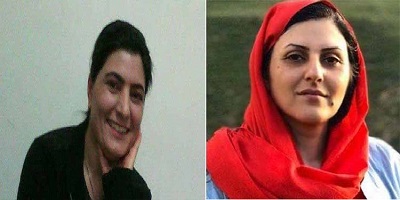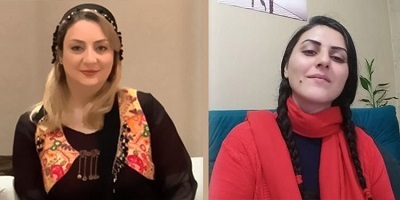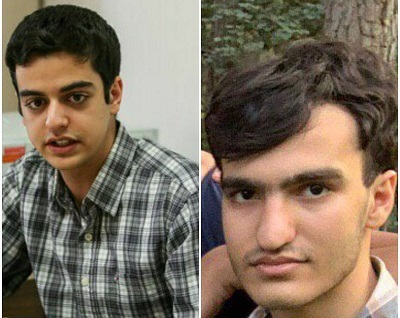Political prisoner Golrokh Ebrahimi Iraee: Life does not exist in Qarchak Prison
Published by Ali on September 11, 2020
International Liberty Association: Human right activist prisoner Golrokh Ebrahimi Iraee sent a letter from the notorious Qarchak Prison on the anniversary of the executions of three Kurdish political prisoners, Zanyar and Loghman Moradi and Ramin Hossein Panahi.
Describing Qarchak Prison as “the largest women’s prison in the Middle East,” she wrote in this shocking letter, “Life does not exist” in this prison and “this is what could be said in a nutshell.”
ILA: The translation of the complete text of the letter by Golrokh Ebrahimi Iraee follows:
Life does not exist in Qarchak Prison of Varamin, the largest women’s prison in the Middle East. And this is what could be said in a nutshell.
Here you can see the depth of the catastrophe created by those who hold the positions of power… This is a full reflection of our society under an authoritarian rule.
Some of the prisoners here just waste all their time and they literally do nothing. This is the way they spend all the years of their imprisonment without anyone caring about such reproduction of crime.
Some inmates get gradually promoted for serving the prison authorities and guards. They thus become their co-workers and bring additional pressure on other inmates.
Some other inmates do all prison services and turn the wheels of this prison, of course, without receiving any wages!
With dim eyes and dull skin, without having any wishes for themselves. They are hungry and in the true sense of the word, they are deprived.
They are deprived of eating even a complete meal, of being called respectfully, and of even being considered. The most deprived of these workers are those who carry the prisoners’ food.
They do not have work uniforms. With their tacky and sometimes tattered clothes, they transfer the food of more than 1,000 prisoners from the kitchen to the wards. They look around as if no one has ever loved them. They do not receive any wages and let me stress: no wages.
They carried out their forced labor every day, with two old carts. The wheels of these carts broke down last April. So far, none of the maintenance workers, none of the prison guards, not the warden of Qarchak Prison, and not even the inspectors of the General Department of Supervision over the Prisons of the Islamic Republic, have been able to have the carts fixed or even replaced with new ones.
Over the past four months, the pots of food and boiling water have been carried to the 11 wards of Qarchak Prison without the carts and by hand. To this moment, the requests for repairing the carts have gotten nowhere, being responded only by hollow promises.
Because of widespread repression, because of lack of knowledge about our rights, and because of shortcomings and deprivations, there are no protests. If there is a slight protest, prison guards violently crack down on the inmates.
From Haft-Tappeh to Arak, from Tabriz to Bushehr, and even to Qarchak Prison in Varamin, workers in Iran are deprived of their basic living rights and they are doomed to live on a day-to-day basis. No one kisses the hands of a worker here. They do not pay them salaries, and even do not provide them the tools they need to help protect their health and safety.
In a land where freedom-lovers are murdered by the government, workers are also deprived. They issue death sentences for protesters and freedom lovers and accuse them of sabotage and terrorism.
By changing the name of the poor to the sector which enjoys less opportunities, they try to cover up the ugly face of poverty and its bitter nature.
They call the shanty towns “suburbs” and mock the hungry children running with bare feet.
Two bitter years pass since the combatants of freedom —Zanyar and Loghman Moradi, and Ramin Hossein Panahi— left us. Their unfair execution has only further strengthened our resolve to topple all systems of oppression regardless of their positions and clothes. Whether they are prison guards or sitting at the helm of the government; whether they are sitting on the royal throne or wearing the black cloak of the reactionary (mullahs).
Commemorating those who became unforgettable on this day,
Golrokh Ebrahimi Iraee
September 7, 2020
Qarchak Prison of Varamin



